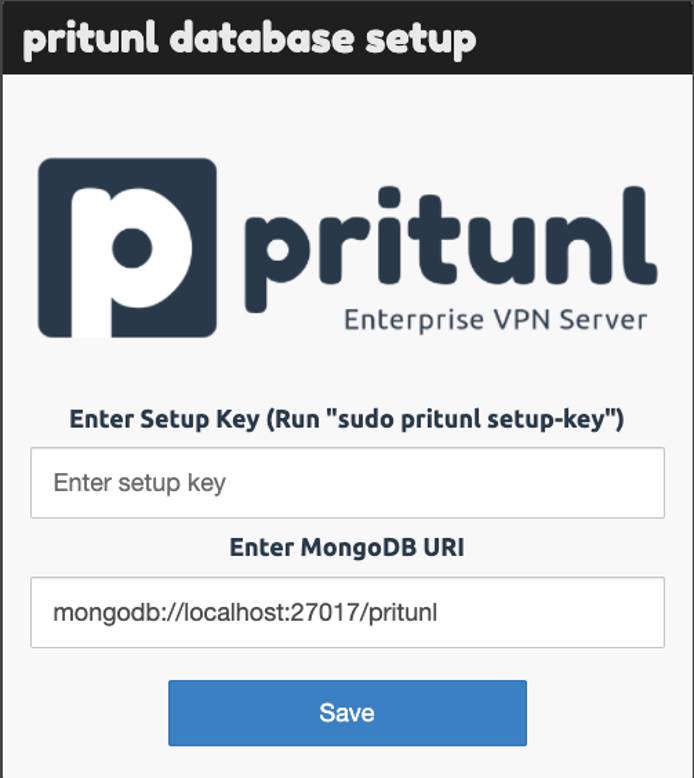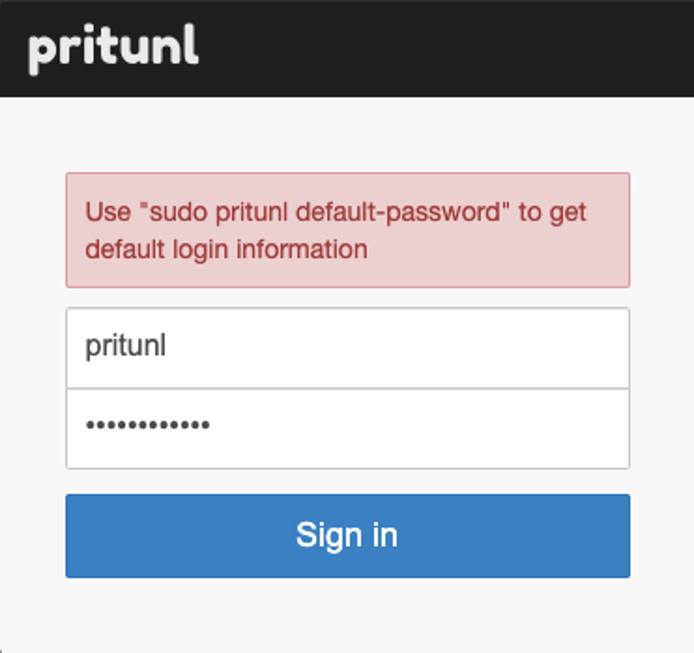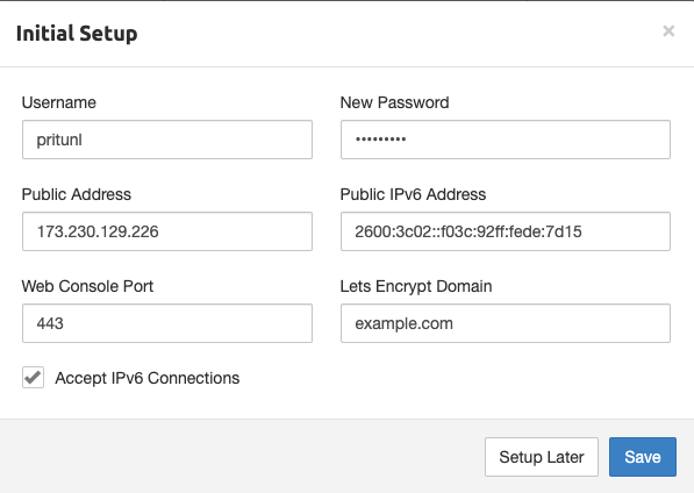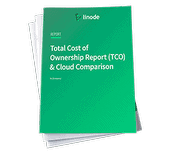Deploying Pritunl through the Linode Marketplace
Traducciones al EspañolEstamos traduciendo nuestros guías y tutoriales al Español. Es posible que usted esté viendo una traducción generada automáticamente. Estamos trabajando con traductores profesionales para verificar las traducciones de nuestro sitio web. Este proyecto es un trabajo en curso.
Pritunl is an open source VPN server and management panel. It gives the user the power of the OpenVPN protocol while using an intuitive web interface.
Deploying the Pritunl Marketplace App
The Linode Marketplace allows you to easily deploy software on a Linode using the Linode Cloud Manager.
Log in to the Cloud Manager and select the Marketplace link from the left navigation menu. This displays the Linode Compute Create page with the Marketplace tab pre-selected.
Under the Select App section, select the app you would like to deploy.
Fill out all required Options for the selected app as well as any desired Advanced Options (which are optional). See the Configuration Options section for details.
Complete the rest of the form as discussed within the Getting Started > Create a Linode.
Click the Create Linode button. Once the Linode has provisioned and has fully powered on, wait for the software installation to complete. If the Linode is powered off or restarted before this time, the software installation will likely fail. To determine if the installation has completed, open the Linode’s Lish console and wait for the system login prompt to appear.
Follow the instructions within the Getting Started After Deployment section.
Software installation should complete within 2-5 minutes after the Linode has finished provisioning.
Configuration Options
Pritunl Options
Here are the additional options available for this Marketplace App:
| Field | Description |
|---|---|
| The limited sudo user to be created for the Linode | This is the limited user account to be created for the Linode. This account has sudo user privileges. |
| The password for the limited sudo user | Set a password for the limited sudo user. The password must meet the complexity strength validation requirements for a strong password. This password can be used to perform any action on your server, similar to root, so make it long, complex, and unique. |
| The SSH Public Key that will be used to access the Linode | If you wish to access SSH via Public Key (recommended) rather than by password, enter the public key here. |
| Disable root access over SSH? | Select Yes to block the root account from logging into the server via SSH. Select No to allow the root account to login via SSH. |
| Your Linode API Token | Your Linode API Token is needed to create DNS records. If this is provided along with the subdomain and domain fields, the installation attempts to create DNS records via the Linode API. If you don’t have a token, but you want the installation to create DNS records, you must
create one before continuing. |
| Subdomain | The subdomain you wish the installer to create a DNS record for during setup. The suggestion given is www. The subdomain should only be provided if you also provide a domain and API Token. |
| Domain | The domain name where you wish to host your Pritunl instance. The installer creates a DNS record for this domain during setup if you provide this field along with your API Token. |
| Admin Email for the server | The start of authority (SOA) email address for this server. This email address will be added to the SOA record for the domain. This is a required field if you want the installer to create DNS records. |
General Options
For advice on filling out the remaining options on the Create a Linode form, see Getting Started > Create a Linode. That said, some options may be limited or recommended based on this Marketplace App:
- Supported distributions: Ubuntu 20.04 LTS, Debian 10
- Recommended plan: All plan types and sizes can be used.
Getting Started after Deployment
Accessing the Pritunl App
Log in to your Compute Instance over SSH. See Connecting to a Remote Server Over SSH for assistance.
Run the command below to obtain your setup key. This key is used in a later step.
sudo pritunl setup-keyRun the command below to generate the password:
sudo pritunl default-passwordOpen a web browser and navigate to the domain you created in the beginning of your deployment. If you did not enter a custom domain, use the IP address of the server. You may need to access the self-signed certificate before continuing.
Note
In Chrome, you can accept the self-signed certificate by clicking on Advanced and then click Proceed to <ip> (unsafe). In Firefox, click on Advanced, then Add Exception, and then Confirm Security Exception.The Pritunl Database Setup screen appears. Enter the setup key that was generated in a previous step.

The login prompt appears. Enter
pritunlas the username and then use the password generated in a previous step.
Once you’re logged in, you can change the default password and enter the domain information so Pritunl can setup the SSL certificates automatically:

Now that you’ve accessed your dashboard, check out the official Pritunl documentation to learn how to add users and further utilize your Pritunl instance.
NoteCurrently, Linode does not manage software and systems updates for Marketplace Apps. It is up to the user to perform routine maintenance on software deployed in this fashion.
More Information
You may wish to consult the following resources for additional information on this topic. While these are provided in the hope that they will be useful, please note that we cannot vouch for the accuracy or timeliness of externally hosted materials.
This page was originally published on





